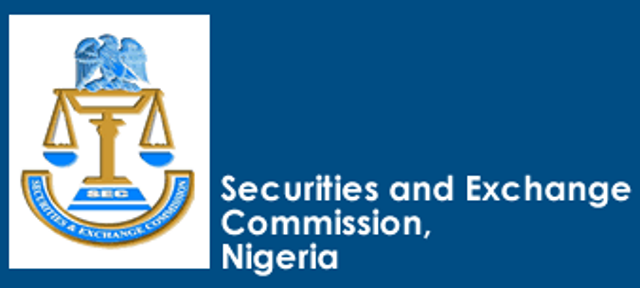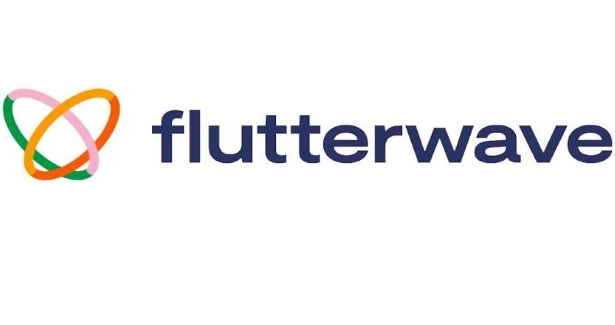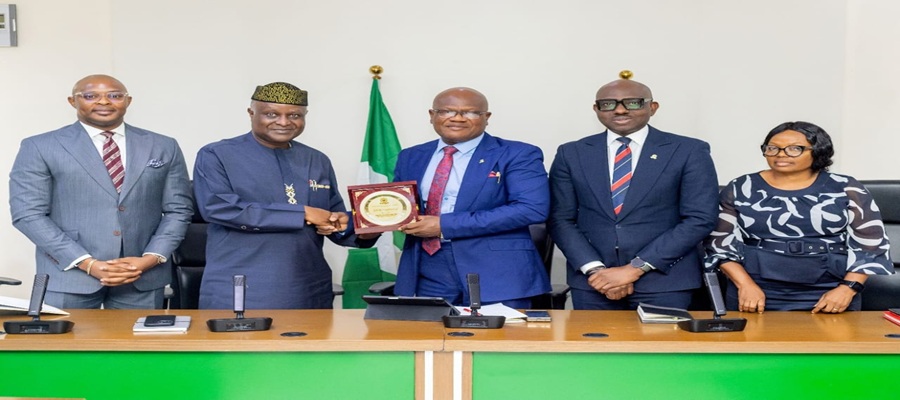E-Financial
Capital Market Operators Get April 30 Deadline to Renew Licences

Securities and Exchange Commission (SEC), has given Capital Market Operators, CMO, April 30, 2021, as deadline to renew their operation licences.

Mr. Lamido Yuguda, director general of SEC, who briefed journalists on the outcome of the first quarter Capital Market Committee meeting held virtually said licence renewals will now be periodical.
He explained that the “rationale for this is to ensure that operators in the market are fit and proper at all times and to strengthen the supervision and monitoring activities of the Commission. The renewal process is electronic and the deadline for 2021 renewal is 30th April, 2021”.
Speaking on the controversy over restriction placed on trading in digital currencies and other digital assets, the DG said the lack of access to commercial banking accounts as a result of ban imposed by the Central Bank of Nigeria means the market no longer exists.
According to him, “The Commission recognizes the impact of FinTechs on capital market activities, and wishes to assure the public that we remain accommodative of this development. We shall continue to engage players and support them to cooperate lawfully. Our aim is to ensure the delivery of safe products and services without stifling innovation, I therefore encourage FinTech firms to approach the Commission for due registration and desist from operating illegally”.
Giving details during questions and answers, he said: “In the area of cryto assets, you know that with the recent prohibition by the CBN of access to Nigerian banking accounts by the crypto exchanges that market has been disrupted.
“The truth of the matter is that while the SEC has issued guidelines in September 2020 aimed at regulating this market, for now, for all intent and purposes because these exchanges do not have access to commercial banking accounts in Nigeria, the market now does not exist.
“We are in discussion with the CBN towards better understanding and better regulations for this market. We would be able to come back at some point later to tell of the result of our engagement but because of the lack access to commercial banking accounts, we have to suspend our circular of September 2020.
“The implementation of that circular is suspended until these operators are able to have access to Nigerian banking accounts”, he added.
Yuguda therefore advised all registered CMOs to “refrain from providing any form of support to unregistered entities operating unlawfully within our market, as such action would not be condoned.
Furthermore, we urge CMOs to improve on their level of compliance, timeliness and correctness of disclosures and other filings made to the Commission”.
He disclosed that at April 8, 2021, there were still 4,012,311 accounts with incomplete know your customers, KYC, information, reminding CMOs to update their KYC information.
“This exercise is critical to deepening the participation of retail investors and we direct all CMOs to accord it the highest level of priority”, he added.
He also stated that the Nigerian Stock Exchange has concluded the Demutualization process.
“As a result of this, the Organization would now be known as the Nigeria Exchange, (NGX), Group Plc. While NGX has informed us that a formal launch of the Group would be made at the end of April, we used the platform of the meeting to congratulate the new management of the Group. The Shares of NGX Plc have also been admitted on the NASD platform for trading.
“As part of measures to support the development of the commodities ecosystem, the Central bank of Nigeria (CBN) revalidated its 59.9% holding in the Nigerian Commodities Exchange (NCX) to ensure its appropriate positioning for effectiveness. This addressed the funding problem plaguing the NCX and several engagements are ongoing with relevant authorities to promote trading on the Exchange”.
E-Financial
Flutterwave Rises from Lagos Startup to Africa’s Fintech Powerhouse

Flutterwave has transformed from a modest Lagos venture into one of Africa’s most valuable fintech firms, processing billions in transactions yearly across 30+ countries and 150+ currencies.

Flutterwave
Founded in 2016 by Iyinoluwa Aboyeji, Olugbenga “GB” Agboola, and Adeleke Adekoya, it tackled Africa’s fragmented payments—siloed banks, mobile money gaps, and unreliable cross-border flows—with a unified API for seamless collections, payouts, and settlements.
Founding Vision
The trio spotted the pain: Aboyeji’s Andela faced border delays; Agboola drew from PayPal/Google; Adekoya handled compliance. Early wins included Uber Nigeria payouts from a Lekki co-working space, proving scalability amid lean ops.
Growth Milestones
2017–2020: $10M seed/Series A fueled West Africa push; Agboola took CEO helm post-Aboyeji; COVID boosted e-commerce volumes.
2021–2022: Unicorn at $1B+ (Series C, $170M); $3B+ valuation (Series D, $250M); partnerships with Microsoft, Uber; Send App for US diaspora.
2025–2026: Profitability focus yields better margins; 34 US licenses; Mono acquisition ($25–40M) bolsters open banking.
Challenges Overcome
Regulatory hurdles hit: Kenya 2022 freeze (cleared); Nigeria fraud claims (resolved, controls enhanced); culture probes led to reforms with ex-Mastercard/Stripe hires. These underscore multi-jurisdiction risks like FX curbs and cyber threats.
Nigeria’s Fintech Role
Flutterwave anchors alongside Paystack (Stripe-owned), Moniepoint, amid CBN cash curbs and AfCFTA trade boosts. Dual HQ in Lagos/SF eyes IPO post-profitability, cementing it as Africa’s payments backbone.
E-Financial
CIBN Pledges Full Support to New ACAMB Leadership, Backs Ambitious Roadmap

Chartered Institute of Bankers of Nigeria (CIBN) has pledged its full support to the Association of Corporate and Marketing Professionals in Banks (ACAMB) following a high-level strategic meeting between the leadership of both bodies.

New ACAMB Leadership
The high profile meeting, which took place on Tuesday at the CIBN Building, Lagos, served as a formal introduction of the new ACAMB Executive Committee to the CIBN leadership and marked the beginning of a renewed collaborative alliance.
Leading a delegation of the newly inaugurated ACAMB EXCO and Board of Trustees, the President, Jide Sipe, described the visit as a crucial first step in his tenure, aimed at contributing significantly in giving flight to his vision and that of ACAMB.”
“When we assumed office, one of the first things we agreed on was the need to visit key stakeholders”
“However, before reaching out more broadly, we felt it was important to begin with our primary constituency and core stakeholders. We want them to understand the direction we are taking and to support the work we are doing, so that ACAMB can achieve greater success than it has in the past”
“We couldn’t have properly started our tenure without this very important meeting with the CIBN,” Sipe stated
Sipe introduced the newly constituted ACAMB Exco, which includes, the 2nd Vice President, Morolake Phillip-Ladipo; General Secretary, Olugbenga Owootomo, Assistant General Secretary, Ademola Adeshola; Publicity Secretary, Abiodun Coker, and Executive Secretary, Fadekemi Ajakaiye
During his address, Sipe unveiled an ambitious roadmap for the association, highlighting a new direction focused on youth engagement, professional development, and industry advocacy.
Responding, the CIBN President, Professor Pius Deji Olanrewaju, who warmly received the ACAMB team, commended their forward-thinking vision as he noted that, the association would be focusing on critical areas such as reputational management, sustainable corporate practices, and governance reforms
Olarenwaju also commended ACAMB’s collaboration with CIBN in information management, saying it had raised standards across Nigeria’s banking sector.
“ACAMB’s support has given CIBN and the banking sector brand equity,” he said, praising the association’s record in reputation management.
He recalled ACAMB’s role in addressing crises within the sector, describing the partnership as strategic and beneficial.
He further pledged support for ACAMB’s 30th anniversary in September 2026, its AGM, and other programmes, including fundraising initiatives.
Olarenwaju also promised backing for ACAMB’s capability development and undergraduate mentorship schemes.
“I want to assure you that everything you have presented today has been clearly noted and will be acted upon”
“We are fully committed to working closely with you so as to translate these discussions and vision into measurable progress. Our shared goal is to strengthen the sector, protect its reputation, and enhance its public image in a meaningful and lasting way”
“This meeting discussed various initiatives and reforms crucial for the future of our industry, including the need for continuous training and adaptation to new programs,” Prof. Olanrewaju said.
The meeting concluded on a high note, with both parties expressing gratitude and a firm commitment to deepening their collaboration for the advancement of the banking industry in Nigeria.
E-Financial
Kuda Bank Teams Up with Lovers & Frnds for Inclusive Valentine’s R&B Bash

Kuda Microfinance Bank partnered with Lovers & Frnds for a Valentine’s edition event on Sunday, February 15, at Space Hub Lekki, Lagos, redefining celebrations around love, friendship, and social connections beyond romance.

Kuda Bank
The R&B-themed gathering drew couples, friend groups, and solo attendees with music sets from DJs like TGarbs, games, gift exchanges, and colour-coded tags—red for relationships, yellow for mingling singles, orange for non-minglers—to spark easy interactions.
Kuda activated a branded photo booth, merchandise giveaways, prize activities, and complimentary drinks for Premium loyalty tier customers, while vendors used Kuda Business POS terminals for seamless cashless payments.
Senior Brand Manager Emmanuel Femi-Adejobi said: “We partner with experiences matching our customers’ lifestyles in music and entertainment, creating spaces they genuinely connect with—we’ll keep supporting how they live and celebrate.”

 E-Business1 day ago
E-Business1 day agoAfDB, UNDP Launch $10Bn AI Initiative for Africa

 News2 days ago
News2 days agoNITDA Urges Stronger State Partnerships as Key to Digital Economy Goals @ South-South Stakeholders Forum

 Telecom2 days ago
Telecom2 days agoGSMA Launches Innovation Fund to Accelerate Green Transition Through Mobile Technology

 E-Business2 days ago
E-Business2 days agoFirm Identifies RenEngine Loader Distributed Through Pirated Games and Software

 Telecom2 days ago
Telecom2 days agoProf. Adeyanju is Strengthening Nigeria’s Digital Backbone for a Connected Future in Two Years of Purposeful Leadership

 E-Financial2 days ago
E-Financial2 days agoFidelity Bank Launches HerFidelity Apprenticeship Programme 2.0 to Boost Women Entrepreneurship

 Telecom1 day ago
Telecom1 day agoGrey Expands Cross-Border Banking with USD Accounts, USDC Support

 E-Financial2 days ago
E-Financial2 days agoTAJBank Secures A1 Ratings from Agusto, Datapro



























